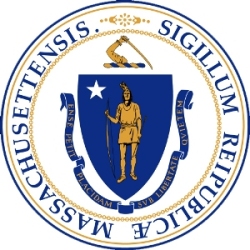Findings of Massachusetts Gambling Study

Massachusetts opened its first casino called Plainridge Park back in June of 2015, and since then it has been very careful and deliberate in its approach to the state’s nascent gambling industry. Wanting to be prepared to address social concerns that may arise due to the legalization of casino gambling, Massachusetts has commissioned several studies of gambling in order to determine what the most common problems associated with gaming are, and who the problems are most likely to effect.
Commissioned Gambling Study
The research in question was done through two different studies; the first was the Social and Economic Impacts of Gambling in Massachusetts study conducted by Rachel Volberg under the order of the commission; and the second was headed by Robert Williams from the University of Lethbridge in Alberta, Canada, and conducted through a joint effort with the University of Massachusetts Amherst School of Public Health and Health Sciences. For the second study, researchers used an online questionnaire to survey 5,046 residents of Massachusetts about their gambling behavior and any associated problems.
Key Takeaways
In early February, the research team from the two universities released their findings of their study in a paper called “Impacts of Gambling in Massachusetts: Results of a Baseline Online Panel Survey.” Some key takeaways from the study included:
– The survey found that financial hardship was the most common problem experienced by gamblers, with roughly 3.8 percent of all gamblers stating that they had experienced financial difficulties stemming from gambling. About 51.1 percent of people who self identified as problem gamblers also said that they had gone through financial hardship because of gaming.
– About 5.2 percent of the survey respondents who were considered problem gamblers had to declare bankruptcy. While it’s possible that other issues may have contributed to their desperate situation, gambling surely played a role in putting the individuals into a situation where their only option was to enter into bankruptcy proceedings.
– Health and stress-related issues are also common concerns. The study found that 3.8 percent of all gamblers experienced some type of health problems or stress due to gaming. Among self-identified problem gamblers, the numbers rose to as high as 47.6 percent.
– Mental health problems were the third most commonly experienced problems associated with gambling. About 3.2 percent of all gamblers reported mental health concerns, with around 34 percent of all problem gamblers having some type of mental health problem.
– Compared to the in-person survey, the ‘Impacts of Gambling in Massachusetts: Results of a Baseline Online Panel Survey’ was able to identify 2.5 times as many problem gamblers. The authors of the study explained that a different sampling strategy was used in order to identify more individuals who had the potential for gambling addiction.
– Although the study uncovered that there are major concerns related to gambling for individuals who become addicted, some problems were uncommon even amongst problem gamblers. Only 4.4 percent of the problem gamblers surveyed had ever considered suicide, while relationship problems related to gambling affected only 1.1 percent of all gamblers, and 16.3 percent of problem gamblers. In addition, 3.7 percent of problem gamblers reported that their gambling addiction had led to divorce or separation.
A Follow Up Study in 2020
Volberg and Williams have stated that a follow-up survey will take place in 2020 in order to examine any changes that may occur to the results of their research over the next few years. Together, they said that this would be useful “in developing data-driven strategies to promote responsible gambling, raise awareness about problem gambling and design general and targeted prevention and treatment programs for problem gamblers and their families.”
Online Gambling Expansion
In the meantime, Massachusetts is hoping to give its state lottery a boost by taking its product online, and last month Sen. Jennifer Flanagan introduced a piece of legislation called Bill SD.6, with the aim of the bill being to “conduct a state lottery, including a lottery conducted online, over the internet or through the use of mobile applications.”
Despite the Massachusetts State Lottery generating net profits of $989.4 million in 2016, this year’s total is estimated to come in below that amount. Furthermore, the Lottery’s most popular product, scratch cards, are presently 3% below last year’s tally for the first 5 months of the fiscal year, thus providing an incentive for state lawmakers to get on board. Nevertheless, a formidable group of anti-gambling advocates have already voiced their opposition to any moves towards a gambling expansion in the state, including Stop Predatory Gambling.










